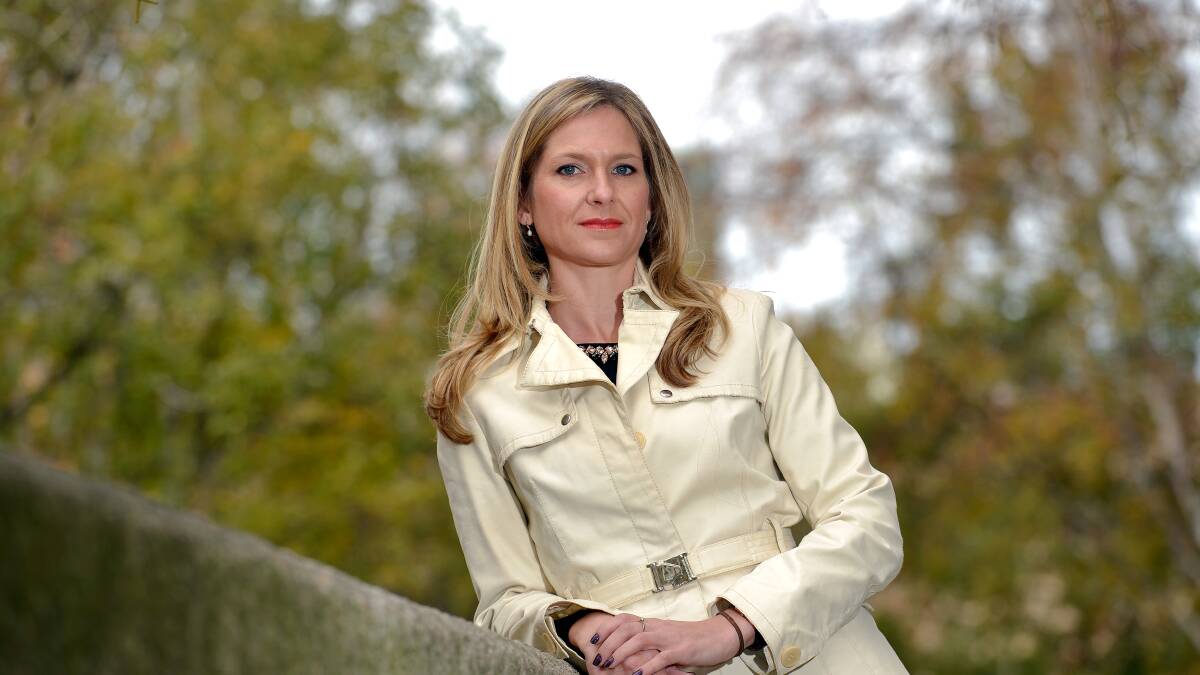
It was disappointing but not surprising to read that some people now regard my hometown of Maryborough in central Victoria as 'Scaryborough'. (Maryborough, the Victorian regional town struggling with self-esteem, ABC News, 30/6/2019)
Subscribe now for unlimited access.
or signup to continue reading
I was fortunate enough to be encouraged to leave Maryborough in 1997 to go to university in Melbourne aware it faced some entrenched social problems that may have their origins in the way some social welfare recipients were transferred there in the 1970s and the deterioration of manufacturing as a source of stable employment. Then working as a police officer for 10 years, I saw up close the impact of inequality and disadvantage in an urban setting.
Sharing local stories of accomplishment ... will allow the community to acknowledge the strengths that ... exist.
Now in my role on the Board of Directors for the Global Law Enforcement and Public Health Association I am involved in international efforts to address many of the same complex social issues that are of concern back home.
Although I do not live in Maryborough anymore, I have a connection to the town where I spent my first 18 years and can see how its problems should be seen in a bigger context than just perhaps a troubled rural town that some Victorians may sadly now not want to visit.
In 2015, Maryborough hosted the Royal Commission into Family Violence and will soon host the only regional town hearings for the Royal Commission into Victoria's Mental Health System. These are important to draw attention to the impacts of generational disadvantage, unemployment and service gaps for the district which are also being addressed through the Go Goldfields project. But to what extent will the findings from both inquiries be integrated for a systematic state-wide response?

I have just returned from a conference in Ireland to discuss the report from its Commission into the Future of Policing in Ireland, where I spoke about the importance of a joined-up, multi-sector approach for not only responding to, but also, preventing crimes by addressing underlying causes. This reflects the public health approach to violence reduction currently being advanced in some parts of the world. Scotland is the leader in this form of intervention which is credited for halving the homicide rate between 2008 and 2018, as well as reductions in other forms of violence.
The Victorian State Government could benefit from adopting a systematic public health approach to violence reduction which would address issues facing the Maryborough community following two horrific homicides in 2018. Similarly, the Top600 program in The Netherlands identifies the top 600 (mostly male) offenders and targets them with interventions to ensure they have stable housing, access to education, employment, mental health services and drug treatment. The results from this joined-up approach includes a significant reduction in crime and recidivism among young people and the closure of prisons because there is simply no-one to put in them.
In contrast, incarceration rates in Victoria are growing with women, especially Indigenous women, among the worst affected (In Victoria's prisons, women pay for men's violence The Age, 29/6/2019).

Maryborough hosts the annual Energy Breakthrough and has numerous sporting role models, but more needs to be done to ensure the town's young people are inspired and confident they can achieve great things locally and beyond. But there is also often asymmetry in what is celebrated as success in rural towns like Maryborough and this needs to change. For example, Maryborough's entry on 'Notable people' in Wikipedia is itself noteworthy due to the absence of representation from half the population - women.
In 2016, I started a scholarship program for two female Year 11 students from the Maryborough Education Centre to attend the International Law Enforcement & Public Health Conference series (held this October in Edinburgh). The students have an educational and cultural experience along with exposure to professional career pathways that relate to issues at home such as intimate partner violence, drug use and ill mental health. A student from the inaugural year recently received Best First Year Human Rights Student award at Monash University - an incredible achievement by a remarkable young woman who is now an inspiration to other young people. There are many more stories of success which have their origins in Maryborough. Sharing local stories of accomplishment - in all their diversity - will allow the community to acknowledge the strengths that currently exist and inject a much needed boost to local sentiment and self-esteem.
Dr Melissa Jardine PhD is an adviser to the United Nations Office on Drugs and Crime on gender equality in South East Asian policing.Find the scholarship program at: https://melissajardine.com/mec-leph-award/
Have you signed up to The Courier's variety of news emails? You can register below and make sure you are up to date with everything that's happening in Ballarat.













